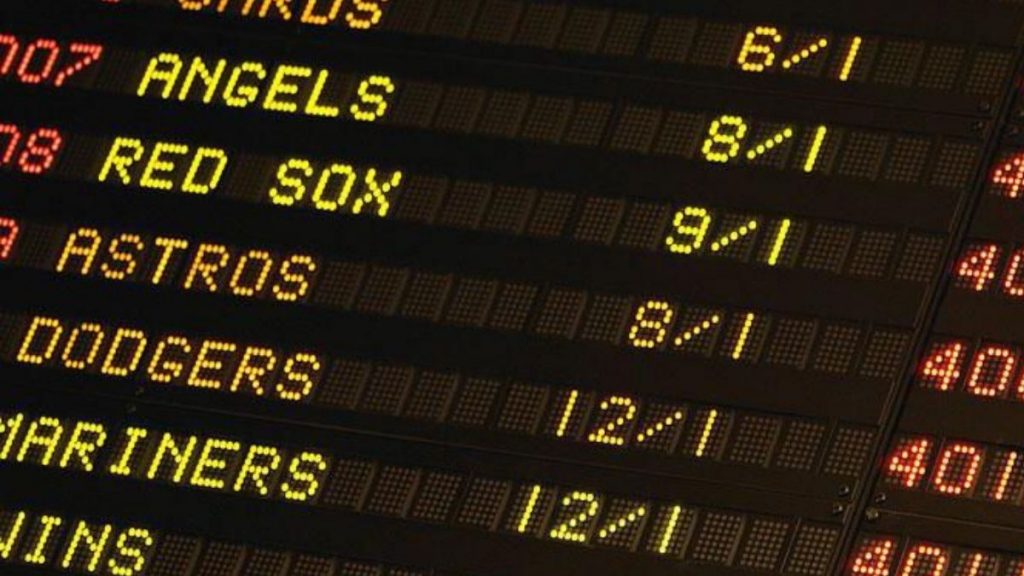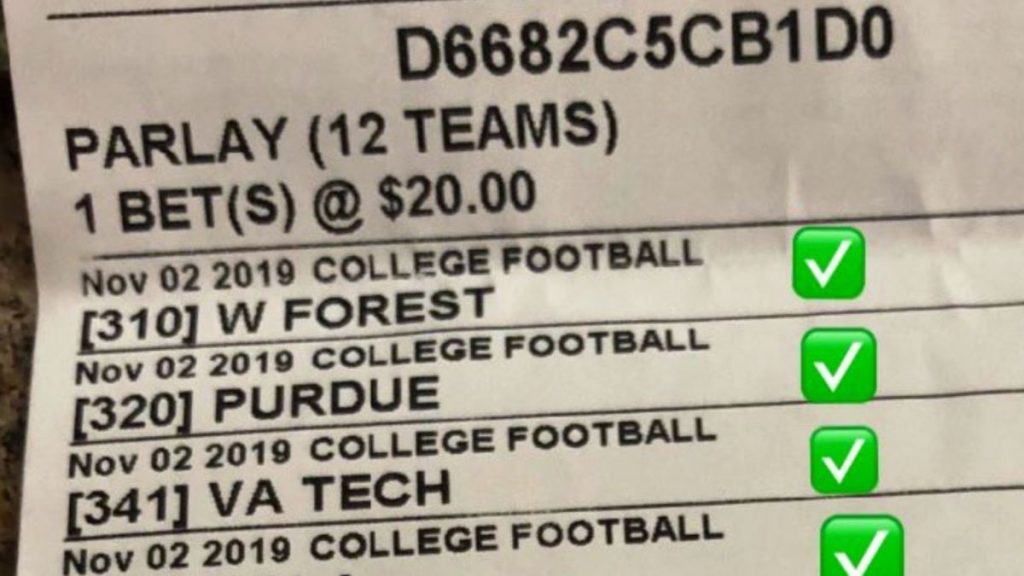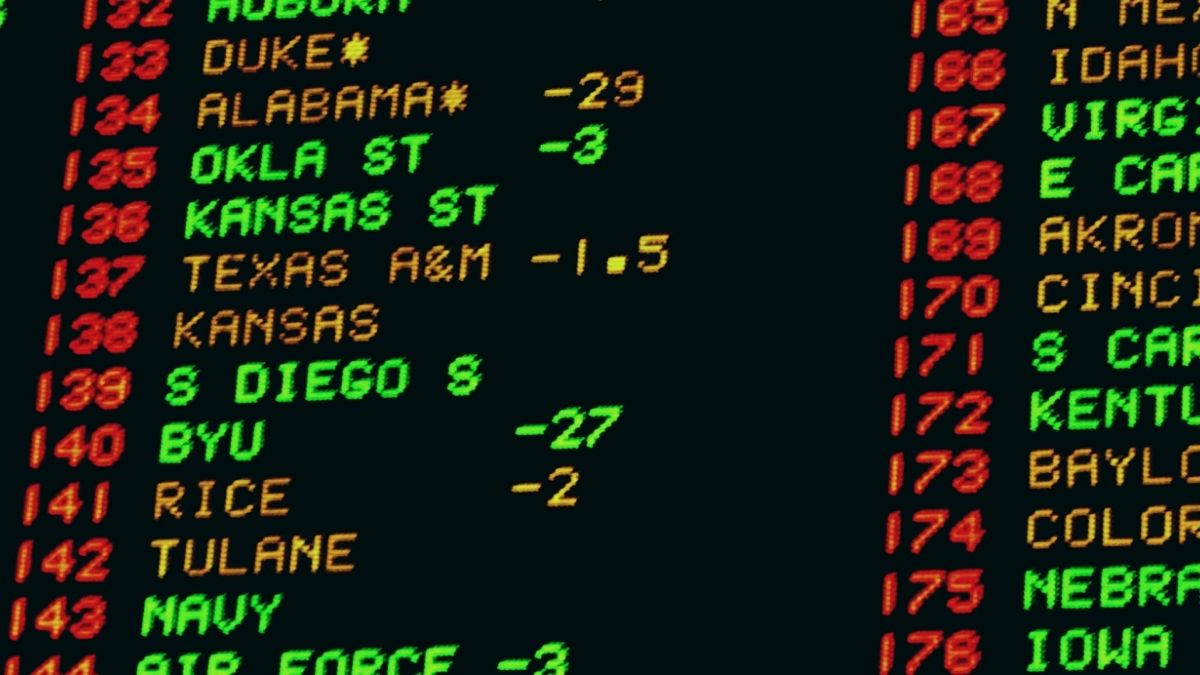Are Parlays bad bets? It’s an age-old question with no simple answer. Because they are high-risk, high-reward betting techniques, they cannot be readily compared to other types of betting. And, sports betting experts will advise you to avoid this bet.
Have you heard the term “sucker bet” before?
In gambling, the term “sucker bet” refers to bets that favor the house. They’re high-risk, but if they pay off, you might be looking at a large payoff or perhaps life-changing cash.
If you’re acquainted with casino gambling, playing the table matches in a game of Blackjack is a sucker bet. The same idea applies to parlays in sports betting in top online betting site.
What are Parlay’s bets?
A parlay is a bet that combines many sides (or legs) into one wager in return for better odds. All of your bets must win for you to win your parlay bet.
These bets are popular for one reason: you may win a lot of money by risking a small amount of money. For example, putting $100 on an 8-team parlay might result in a profit of almost $17,000.
Isn’t that exciting?
Parlay bets are advantageous since they provide bettors with the opportunity to win a large sum of money. They are popular because they have the potential to be tremendously profitable. However, parlays may result in massive payments as well as massive losses. Some gamblers like to make these bets in the hopes of getting a large payout for a modest investment.
How do Parlay bets work?
To consider your bet a parlay, it must include at least two picks, or “legs”. Most sports betting sites require you to select the maximum number of legs per bet to 10 or 12. In addition, moneylines spreads, and totals are commonly used in parlays. On the other hand, some sportsbook betting sites and top online betting site enable bets like props and futures to be included in these bets.

So, are parlays bad bets?
Parlays, by their very nature, make bets more advantageous. This is because they involve numerous sides, each of which raises the possible reward. What makes parlays so profitable and entertaining is also what makes them so dangerous.
Because a winning parlay cannot tolerate any losses, these bets might be difficult to profit from. For the parlay to pay off, each “leg” must win. Therefore, the likelihood of winning becomes riskier with each additional selection.
Parlay Bets: How does it work?
In most sports bets, you are betting on a particular outcome. With a point spread, for example, you’re wagering on a team’s ability to cover the spread.
Parlay bets, on the other hand, are different in that they require you to gamble on two or more propositions. You might wager on one team covering the point spread while another wins on the moneyline.
It’s fun to be able to choose different outcomes inside a single wager. You must, however, win every pick or you will forfeit the wager.
For a better understanding of how parlays work, consider the following example:
Let’s say your first pick is New York Jets with a +3.5 odds. And, your second pick is Baltimore Orioles with -135 odds. Then, you wager a $100 on this two-team parlay. Both parlays win. Therefore, you make a total profit of $260 ($360).
Parlay bets allow you to select the number of outcomes and payoff sizes you want to pursue. Unfortunately, a parlay wager with more picks is more difficult to win. But even so, because you’re taking on greater risk, you have a better chance of winning.
Are parlays bad bets: How are parlay odds calculated?
It’s impossible to figure out how much you stand to win if you don’t have a parlay calculator on hand. Fortunately, this is where online sports betting can help. When you add games to a slip, it will compute your possible winnings for you, eliminating the guesswork.
Do you want to learn to parlay math?
When using decimal odds, calculating parlay odds is simple. You simply add the odds from each leg together to obtain the parlay odds. However, if you’re using American odds, things get a little more complicated.
Each leg must first be translated to decimal odds before being multiplied together in American odds. The simplest method is to use an odds converter. However, if you prefer to do it manually, here’s how it works:

How to convert American odds to decimal odds?
Take the total payout of your stake and divide it by the amount wagered to convert American odds to decimal odds.
For negative American odds, use the following formula:
Decimal odds = total payout/your stake
With odds of -130, you’d have to bet $130 to win $100, for a total payout of $230.
To calculate the decimal odds, divide total payout/your stake: 230/130 = 1.77.
For positive American odds, use the following formula:
Decimal odds = total payout/ your stake
With odds of +150, you’d bet $100 and win $150, for a total payout of $250.
To get the decimals odds, divide the total payout by your stake: 250/100 = 2.50
Are parlays bad bets: What are Fixed odds parlays?
It’s worth noting that the calculation above does not account for parlay odds at all bookmakers. When betting point spreads or Over/Under totals, some sportsbooks in Singapore have set odds for parlays and assume the regular -110 odds.
Here’s an example of how fixed odds look, however, the payouts might fluctuate from sportsbook to sportsbook:
| Number of Teams | Fixed Odds Payout |
| 3 | 5.5:1 |
| 4 | 11:1 |
| 5 | 22:1 |
| 6 | 44:1 |
| 7 | 88:1 |
| 8 | 175:1 |
| 9 | 350:1 |
| 10 | 700:1 |
| 11 | 1300:1 |
| 12 | 2500:1 |
What Makes Parlay Bets So Popular?
Lotteries and slot machines are famed for their large jackpots. Both games allow you to win large sums of money by placing tiny bets.
On the other hand, sports betting sites do not have the same reputation for massive wins — at least not with tiny bets.
Parlays, on the other hand, are an exception to the rule. They provide you the chance to transform a tiny bet into a large reward worth hundreds or even thousands of dollars.
What does a 3-team parlay payout?
When wagering $10 on a parlay, here’s what to expect in terms of payouts:
- 2-team parlay payout = $26 gain
- 3-team parlay payout = $60 gain
- 4-team parlay payout = $110 gain
- 5-team parlay payout = $220 gain
- 6-team parlay payout = $450 gain
- 7-team parlay payout = $900 gain
- 8-team parlay payout = $1,800 gain
- 9-team parlay payout = $3,600 gain
- 10-team parlay payout = $7,200 gain
Are Parlays Bad Bets or Sucker Bets?
Sportsbooks/bookmakers act as a sort of middleman between different parties interested in betting on sporting events. They establish the odds, accept bets, and take a piece of the activity (juice).
The bookmaker charges juice as the price for their services. In most cases, they don’t take a substantial percentage of the action. However, parlay bets are an exception.

The typical parlay juice varies depending on several criteria, including the:
- Sportsbook
- Type of wager
- Betting market
The losing side is usually only given about 10% juice by sports betting sites. In addition, this statistic represents around 5% of total betting activity. The “house advantage” on the typical sports wager would be roughly 5% if it were a casino game.
Are parlays bad bets?
The amount of money taken from losers varies substantially between parlays. Certain parlays will provide up to 41% juice to betting sites. Here, you’re facing a 41 percent house advantage. This is because you’re betting against the house rather than against other people.
Moreover, some gambling games provide operators with a competitive advantage like this. The house is only this hungry in a few cases, such as lottery drawings and land-based keno games.
Sportsbooks, of course, can obscure the bad deals with their massive rewards. Meanwhile, some gamblers don’t think about the high juice. Instead, they are simply betting $10 or so for a shot for $1,000 or more.
On the other hand, other types of bets may help gamblers obtain more money out of their bankroll in the long term.
Parlay VS. Straight Bet: Are parlays bad bets?
Things are starting to become a little more complicated now. Once you’ve mastered the ins and outs of betting, you’ll feel compelled to bet on as many teams as possible, since the more teams you bet on, the more money you’ll win. But don’t forget to bet wisely.
In parlays, as you add more teams to a single ticket, your chances of winning that ticket decrease. This will result in a higher total payoff.
Large parlay tickets, in our experience, are incredibly difficult to win, as seen by the odds given above. It’s vital to keep in mind that if one of the teams loses, you’ll forfeit the entire ticket. Yes, even if you go 11 for 12 and lose by 12 points in the 12th game. If a gambler just wishes to stake a little amount of money, parlays are a terrific method to win a lot of money.
Straight bets are significantly simpler to understand. It’s a single wager for a single game. Usually, a bettor wins roughly the same amount as they wager. In addition, the sports odds determine the number of winnings.
Look at a money line or run line off the board. You’ll notice that the odds like +120 or -180 are written next to the teams. The underdog is denoted by the plus symbol (+) and the favorite is denoted by the negative sign (-). This means that a $100 wager on the favorite will net you $80. You will gain $120 if you bet $100 on the underdog. As bets are placed in the sportsbook, the odds change.
What are the benefits of Parlays?
Low-risk, high-reward potential
The most enticing aspect of parlay betting is that it allows you to bet on favorites to win without risking a large amount of money. In addition, it comes with the possibility of a good return. It is, without a doubt, the only type of bet that can transform a $20 wager into a five-figure profit.
Furthermore, parlay cards with many bets on them are similar to lottery tickets. Sure, the chances of winning are long. However, you don’t have to put much money on the line to play. And it’s the possibility of making it huge that makes it all worthwhile.
Besides, parlays play an important role in improving the recreational value of sports betting for certain gamblers. Parlay cards are a lifesaver for gamblers who loves the action of the athletic events they watch but don’t have a significant bankroll. Also, they allow you to have action on a whole slate of games. This makes parlays more enjoyable to watch without spending any extra money.
Getting the Most Out of Handicapping
It takes a lot of effort to handicap a tournament correctly. Hours of data gathering are necessary. In addition, it followed by even more:
- Data analysis
- Research
- Continual dataset refining
Furthermore, it also includes a never-ending hunt for connections between certain statistics and victory. Therefore, it would be a waste of money for gamblers.
So, are parlays bad bets?
Meanwhile, parlays allow you to keep putting your newfound knowledge to good use.

Now, you have some insight into which team wins the most often when the two teams battle. Moreover, you have an insight into the most common score outcome. With these two answers in mind, you can combine a moneyline bet or predict the winner. In addition, you can also predict the total number of points scored with total bets. You can either place Over/Under bets set by the bookmaker.
In other words, if you have reliable data models, you may utilize them to generate larger returns than just choosing winners.
Profitability Potential Before Winning or Losing
Whether you win or lose, parlay bets have the potential to be valuable investments. You may have noticed that certain sports betting companies allow you to cash in parlay cards before they finish. Furthermore, internet bet exchanges exist. Here, handicappers can buy each other’s bet tickets if they have value.
Let’s say, you’ll lose $1,200 if that last game wins, and the bookmaker got a terrific deal. If you accept the payoff and the last game loses, you will have been paid 28:1 odds on a stake that would have been worthless. It all comes down to timing and understanding when to hold and fold your cards.
Are parlays bad bets?
Because these exchanges and cash-in options exist, parlay bets can be a profitable investment regardless of the outcome. You may increase the value of even losing tickets if your early choices are winners. Indeed, if you constantly played it conservatively and sold your parlay cards whenever possible, you’d still be in the black.
It’s preferable to win somewhat less than you otherwise would than to lose everything on the final stake. In the example described above, let’s say you sell the card before the last game of a six-team parlay. The worst-case scenario is that you will lose an additional $1,200. Even so, you’ll have made a huge profit. However, if you keep the card and the last game loses, you will receive nothing and will be down $100.






